120 Hz vs. 60 Hz Battery Test By PhoneBuff
What's up guys, David here and without any doubts, high refresh rate screens, have been the biggest trend in smartphones in 2020, with high-end phones like the s20 series having them, and even budget phones getting in on the action and look the benefit of having a high refresh rate is pretty simple by refreshing. The screen more times per seconds. Everything on a phone from scrolling and animations just feels smoother and more responsive, but the problem, of course, is because the phone is technically doing more work by refreshing the screen. More often, it comes at the cost of battery life. So in today's video we're going to try to figure out just how big that cost is at least on the s20 ultra here by testing it at 60 hertz, which is what it's set to out of the box and testing it at 120 hertz in our standard, fun, bluff, style battery test. I'm excited to see what happens.
Let's get right into it. This video is sponsored by surf shark, so you've probably heard about the benefits of using a VPN with the big one being that you can encrypt your personal information via a secure tunnel. So that way nobody can snoop on what you're doing online, but with a VPN like surf shark. You also get side perks like avoiding price discrimination, since some websites actually give you different prices on things depending on who they think you are, and you also get to access content. That's not normally available in your country like different Netflix libraries by accessing it through a server in whatever country it is available in surf shark has strictly no logs, meaning that nobody can know what you're doing online, not even surf shark and at just two dollars a month for unlimited devices that you can use all at the same time surf shark is a killer, deal use code, rumba for 85 off and three extra months, free at the first link down below alright, we'll start things off in the phone app where each phone is going on the same one-hour phone call.
I don't really expect there to be much of a difference here, since the screens are actually off for the majority of this test. But since this is an official fumble style battery test, it's just one of the things we have to go through where, after one hour, the results are exactly the same with each phone dropping by five percent. So nothing too surprising there again. The only variable that we're testing here is refresh rates, which, of course, only plays a role when the screens are actually on. So I'm looking forward to seeing what happens here in the messaging test, where, after one hour of texting back and forth, we see our first difference with the 120 hertz refresh rates coming at the cost of an extra two percentage points here in the email test, we're simply opening up the same set of emails and then maybe, more importantly, we're also scrolling through the emails, a task where you can at least visually notice, the difference between refresh rates the most where, after one hour, it's a repeat of the last test with the 120 hertz galaxy falling.
Another two percentage points behind here in the browser test. We have both phones cycling through the same set of websites, we're not really doing a lot of scrolling, just one scroll every 30 seconds, but a lot of websites are being loaded over the course of the hour when this time the difference isn't as big as before, but still the 120 hertz galaxy falls. Another percentage point behind bringing the total difference now to five percent in just four hours into this test, and here on instagram, that gap is probably only going to grow, since all we're pretty much doing here is scrolling through the home feed, where, after one hour of doing so, the gap between the two phones is now at seven percent, which may not sound like a lot, but on a 5 000 William hour battery, like on the one in the s20 ultra, it's pretty significant now as part of the standard test. Here, each phone is going on a 16-hour standby and since the screens are off the entire time, there wasn't much of a difference. Just your standard margin of error over 16 hours, but moving on the next app up is YouTube where the screen and the speakers are on as each phone binge-watches the same set of videos where, after one hour of doing so, the 120 hertz galaxy falls.
Another two percentage points behind basically picking right back up where it left off before the standby test, increasing the gap between the two to eight percentage points and that difference might get even bigger here in alto's adventure where, while it isn't necessarily the most intensive game, it is at least utilizing the phone's GPUs, where, after 1 hour, there actually wasn't much of a difference which is kind of surprising, with the 60hz galaxy. Only saving one percentage point here in maps, both phones are simulating navigation by having GPS turned on actively checking for traffic information and scrolling through the map where, after one hour of doing so, it's the same as last time. Another percentage point advantage for the 60 hertz galaxy, bringing it a full 10 percentage points ahead as we move on to Spotify now in this test, we're not doing too much with the screens. It's mostly just remaining on, as we play these songs with our robot. Only touching the screen.
Every two minutes to change the song, but just by being on the 120hz galaxy, falls another two percentage points behind so as we head into Snapchat, which, by the way, is the most intensive test in this entire battery test. The 60hz galaxy has a pretty big advantage, we'll see how far each phone can go here where, after 35 minutes, the 120hz galaxy calls it quits. Now, that's not a bad performance at all. In fact, it actually ranks pretty well in our rankings, but the 60 hertz galaxy still has an impressive 14 remaining or enough for the s20 ultra to make it all the way through snap chats, with 7 left to go, which means that the 60 hertz s20 ultra becomes the second phone that we have ever tested to make it all the way to the app cycle test, a test where we simply open up these apps. We close them all, and then we repeat that process over and over again until the phone dies after 24 minutes into the app cycle test, the 60hz galaxy finally dies bringing its total time to an impressive 26 hours and 24 minutes or nearly 50 minutes of screen time longer than the same phone set to 120hz but anyways.
That is it for me in this video. Thank you guys for watching and as always I'll see you in the very next episode.
Source : PhoneBuff

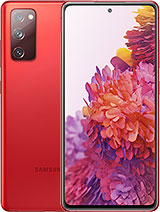
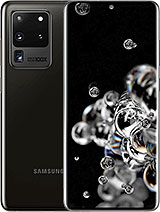
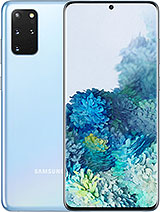
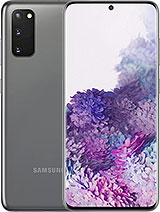
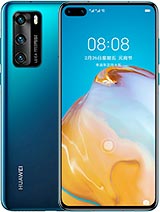













![Xiaomi Mi 10T LITE - Full review with photos, video, audio and more! [Xiaomify]](https://img.youtube.com/vi/SgdI2UE9prA/maxresdefault.jpg )









